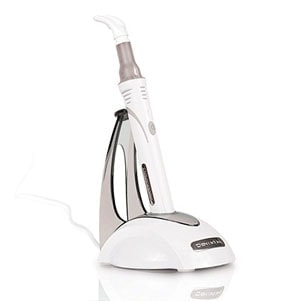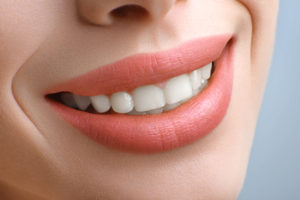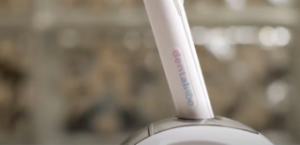You may have seen foods advertising that they’re sweetened with xylitol, a healthier alternative to sugar. Some brands of sugar-free gum even contain xylitol, claiming it can help fight tooth decay and gum disease. What exactly is xylitol, and is it healthy?
What is xylitol and is it good for you?
Xylitol is a naturally occurring compound found in grapes, strawberries, onions, and other fruits and vegetables. Discovered around 1900 in Germany, xylitol was first used as a natural sweetener in Finland during World War II. The U.S. FDA approved xylitol as a food additive in 1963 and later, approved it for use in toothpastes, mints, chewing gum, energy bars and pharmaceuticals.
Chemically, xylitol is classified as a sugar alcohol, a type of naturally occurring carbohydrate. Although the name contains alcohol, sugar alcohols do not contain any ethanol, the compound that causes intoxication.
Can xylitol remineralize teeth?
Clinical studies investigating xylitol’s effects on teeth and gum health show that xylitol’s unique molecular structure can help remineralize dental enamel before bacteria can begin eroding teeth. In addition, xylitol helps maintain a proper oral pH level by supporting an alkaline environment, which can help strengthen weakened dental enamel.
Most of the xylitol benefits for oral health revolve around increasing saliva flow. When saliva is infused with xylitol, alkaline levels in the mouth rise. Once oral pH is above 6.5, phosphate salts and calcium in saliva begin remineralizing (hardening) weakened areas of dental enamel.
How is xylitol used for dental health?
Tooth decay and cavities are the result of oral bacteria secreting acid after you eat, if food particles are not removed by brushing and flossing.
Xylitol has been shown to reduce the risk of tooth decay by promoting saliva flow. This helps stabilize the oral pH level and decrease amounts of harmful bacteria in the mouth. These same bacteria are also responsible for gingivitis, chronic dry mouth, and periodontitis.
Does xylitol kill mouth bacteria?
Bacteria that cause cavities cannot digest xylitol, which significantly inhibits the growth of these bacteria. In fact, studies have found that people who regularly use products containing xylitol have over 50 percent less acid-producing bacteria in their mouths than people who don’t use products with xylitol.
Moreover, xylitol weakens the ability of bacteria to stick to teeth and create plaque. Plaque accumulation (yellowing of the teeth) is difficult to reverse with just brushing and flossing. In most cases, plaque removal requires a professional cleaning by a dentist.
Can xylitol repair cavities?
Numerous studies indicate that xylitol can promote remineralization of damaged dental enamel, when the damage is in its early to middle stages. One study found that xylitol promoted remineralization on artificially demineralized dental enamel. However, remineralization occurred within deeper layers of the enamel only. In this particular study, remineralization did not occur on the surface layers of the synthetic dental enamel.
Another study investigated how much xylitol is needed to promote remineralization of early stage tooth decay. Researchers compared toothpastes containing at least five percent xylitol with toothpastes containing no xylitol. They found the five percent xylitol toothpastes not only inhibited development of tooth decay, but also promoted remineralization of existing tooth decay.
Yet another study found that xylitol by itself may not remineralize dental enamel as well without the presence of fluoride. Authors of this study state that xylitol, when combined with fluoride, phosphate, and calcium, would be an effective method of preventing tooth decay.
Can xylitol reverse gum disease?
Bleeding of the gums is the first sign of possible gingivitis (inflammation of the gums). Caused by poor oral hygiene and accumulation of plaque, gingivitis may lead to receding gum lines, swollen gums, and periodontitis (severe gum disease) if left untreated.
Research into the ability of xylitol to reverse gum disease indicates that it may help reduce mild or early-stage gingivitis. However, if your gums frequently bleed after brushing, you should always see a dentist for a thorough examination.
Can xylitol products be used by people with diabetes?
People with diabetes can safely consume xylitol. Moreover, xylitol is much more slowly absorbed by the body than table sugar and has little to no effects on blood sugar levels.
Sweeteners like xylitol are called “free” foods because they contain less than 20 calories and fewer than five grams of carbohydrates. On a diabetes food exchange chart, xylitol and other sugar alcohols do not count as carbs or calories.
Does xylitol cause any side effects?
Consuming more than 30 grams of xylitol per day may cause stomach problems such as gas, bloating, or diarrhea, but no serious health problems. However, the risk of experiencing stomach problems due to consuming too much xylitol is extremely low. Chewing gum, mints, candies, oral care products, and diabetic foods contain small amounts of xylitol simply because xylitol is almost as sweet as regular sugar.
Summary of xylitol benefits for oral health
- Promotes saliva flow, which helps combat oral bacteria
- Helps remineralize dental enamel compromised by weakened spots (demineralization)
- Can help keep oral tissues hydrated (dry mouth is known to contribute to bad breath and tooth decay)
- Prevents growth of oral bacteria known to cause tooth decay
- Can be safely used by children, adults, and people with diabetes
Toothpastes and mouthwashes containing xylitol are available in some pharmacies and online markets, while chewing gums and mints with xylitol are readily available at any grocery or convenience store.
While xylitol can benefit oral health, it cannot replace visiting a dentist every six months for a professional cleaning and check-up. Visit our directory to find a certified, pain-free dentist near you and schedule an appointment today.
















